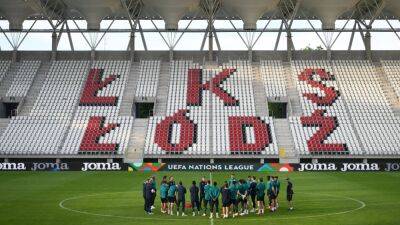Solidarity, gratitude, bitterness, resentment: the Ukrainian refugee crisis is getting complicated
I approached this story with some apprehension.
"Go out there and report about what happens when reality settles in", my editor-in-chief had told me. "The good and the bad things. The complexity of the issue".
Things turned out to be really complex.
Three months after the start of the war in Ukraine, more than 5 million refugees have transited through the European Union. Some have since returned home. Many have stayed.
I had to report on the day-to-day life of those who have stayed. How do they feel? How are they coping with their grief and pain? What are their sorrows, fears - and their hopes?
But equally importantly, I had to report on the feelings of the host populations. Volunteers have provided a huge help. Are they still committed? Or are they starting to feel worn out? And, if that is the case, why? What was the tipping point?
And then, this very uneasy question: what about migrants from other continents, equally in need of our empathy and support? Are we treating them as we are treating Ukrainians? If not, why not?
From the beginning, my choice was to go to two very different European Union countries. One with a direct border with Ukraine and with, until now, limited experience in dealing with a huge refugee crisis.
That was Slovakia.
Another with a long history of difficult issues with immigration, but much further away geographically from the war.
That was France.
I was somehow unprepared for what I discovered in Slovakia. The country has been tremendously generous to its neighbour. 80,000 Ukrainian refugees have so far settled there. Another 360,000 have transited through the country. Near Bratislava, I met the Karliuka family; mum, dad, three children and grandad. They all came from Kharkiv.
The Karliuka family was






